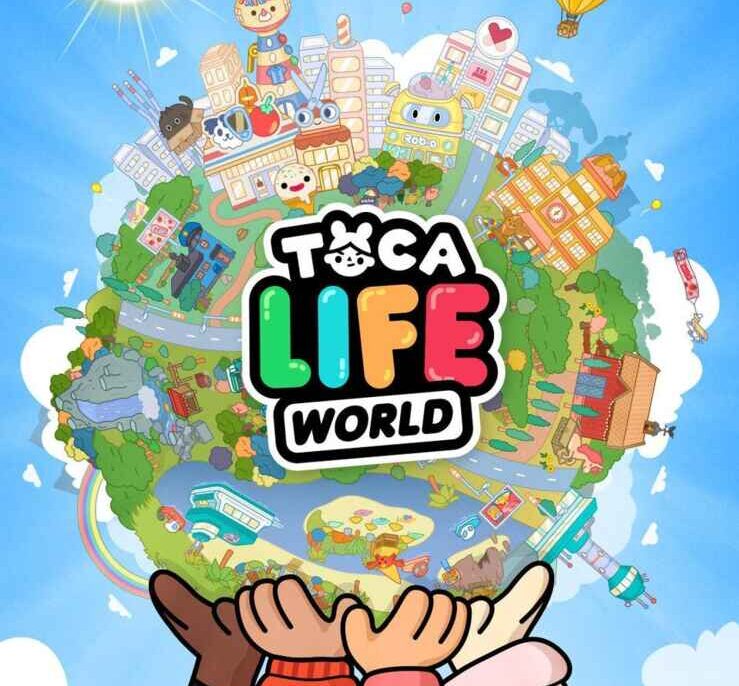Valorant: The Tactical Shooter That Redefined Esports
Since its release in June 2020, Riot Games' Valorant has rapidly ascended to become one of the most prominent tactical first-person shooters in the world. Blending the precise gunplay of Counter-Strike with the unique agent abilities reminiscent of hero shooters like Overwatch, Valorant carved out a distinct niche that captivated both casual players and competitive esports enthusiasts. Its commitment to competitive integrity, robust anti-cheat measures, and a consistently evolving meta has ensured its enduring relevance into 2025 and beyond. Valorant’s success lies in its carefully crafted balance. Every gunfight is a high-stakes affair, where headshots are lethal, and strategic ability usage can turn the tide of a round. This deep tactical layer, coupled with a diverse roster of "Agents" each offering unique utility, creates an endless permutation of strategies. For players in Hanoi and across the globe, Valorant offers a challenging yet immensely rewarding experience that demands both sharp aim and sharp minds.The Foundation: A Hybrid Shooter's Genesis (2020)
When Riot Games, primarily known for League of Legends, announced "Project A" (which would become Valorant) in 2019, the gaming world buzzed with anticipation. The promise of a tactical FPS from a studio renowned for competitive excellence immediately set high expectations. Upon its launch in June 2020, Valorant delivered on many fronts, quickly establishing its core identity. The game presented a 5v5 round-based format where attackers attempt to plant a "Spike" (bomb) and defenders try to prevent it or defuse it. Each round starts with an economic phase where players purchase weapons and abilities. This economic management, combined with the permanent impact of deaths within a round, fostered a high-stakes environment where every decision mattered.Building the Agent Roster: Defining Character Utility (2020-2021)
A key differentiator for Valorant was its "Agent" system. Instead of generic soldiers, players choose from a diverse cast of characters, each with four unique abilities (two basic, one signature, and one ultimate). These abilities are categorized into roles: Duelists (entry fraggers), Initiators (gather intel/disrupt), Controllers (block vision/take space), and Sentinels (hold flanks/fortify sites). The introduction of new Agents at regular intervals became a crucial part of Valorant's live-service model. Each new Agent fundamentally shifted the meta, forcing players to adapt their strategies and team compositions. This continuous evolution ensured that the gameplay never felt stale, and mastering new Agent kits became a core aspect of the competitive grind.Agent Roles and Their Impact
- Duelists: Raze, Jett, Phoenix, Reyna, Yoru, Neon, Iso, Waylay – Focused on getting first bloods and creating space for the team.
- Initiators: Sova, Breach, Skye, KAY/O, Fade, Gekko, Tejo – Excelling at gathering information, stunning enemies, or forcing engagements.
- Controllers: Brimstone, Omen, Viper, Astra, Harbor, Clove – Dominating maps by cutting off sightlines with smokes and creating choke points.
- Sentinels: Sage, Cypher, Killjoy, Deadlock, Chamber, Vyse – Excelling at locking down sites, providing utility for flanks, and slowing down pushes.
The Esports Colossus: Cultivating a Global Competitive Scene (2021-2023)
Riot Games' expertise in esports, honed by League of Legends, was immediately evident in Valorant's competitive infrastructure. The Valorant Champions Tour (VCT) quickly emerged as a premier esports circuit, featuring regional leagues, international Masters events, and the culminating Valorant Champions tournament. This structured path to professional play fostered intense competition and attracted top talent from across the globe. The VCT ecosystem, with its franchised teams and clear progression paths from Challengers to Ascension leagues, provided stability and long-term viability for professional players and organizations. Matches consistently drew millions of viewers, establishing Valorant as a powerhouse in the competitive gaming landscape.Key VCT Milestones
- VCT Challengers: Regional competitions feeding into higher tiers.
- VCT Ascension: Promotion tournaments for Challengers teams to reach International Leagues.
- VCT Masters: Mid-season international events where top teams from regional leagues compete.
- Valorant Champions: The annual world championship, crowning the best team globally.
Unyielding Development: Maps, Modes, and Anti-Cheat (2023-2024)
Valorant's developers at Riot Games have maintained a relentless pace of updates, introducing new maps, refining existing ones, and experimenting with various game modes. Each map is designed with unique tactical considerations, featuring distinct choke points, verticality, and plant sites that demand adaptive strategies. Beyond new content, Riot's commitment to competitive integrity is paramount. Their proprietary anti-cheat system, Vanguard, runs at the kernel level and has been instrumental in maintaining a fair playing field. While controversial for its invasiveness to some, its effectiveness is widely credited with keeping cheating relatively low, preserving the integrity of high-stakes competitive play.Game Modes Beyond Competitive
While competitive 5v5 is the core, Valorant offers several other modes for diverse experiences:- Unrated: Standard 5v5 bomb defusal without rank implications.
- Swift Play: A faster version of Unrated with shorter halves.
- Spike Rush: A chaotic, quick-fire mode with randomized weapons and power-ups.
- Deathmatch: Free-for-all warm-up mode focused purely on gunplay.
- Team Deathmatch: 5v5 team-based deathmatch on specialized maps.
- Escalation: A weapon progression mode.
- Replication: All players on a team play the same Agent.
- Premier: An in-game competitive system designed to mimic the VCT path for amateur teams.
Valorant in 2025: A Mature and Evolving Ecosystem (Current State)
As of July 2025, Valorant continues to be a dominant force in gaming. Player counts remain robust, with reports indicating around 25 million monthly active users and daily peaks often exceeding 700,000 concurrent players. The game's ecosystem is mature, yet constantly evolving, driven by regular patch cycles, new Agent releases, and a thriving esports calendar. The competitive landscape in 2025 is particularly intense. The VCT season has been extended, providing a longer and more consistent flow of high-level play. New agents like Tejo and Vyse have further diversified strategic options, leading to dynamic meta shifts that keep professional play exciting.Recent Agent Additions (2025)
- Tejo (Initiator): Introduced in Act 1 2025, an explosive initiator with sticky grenades and a stealth drone for intel.
- Vyse (Sentinel): A highly regarded Sentinel, praised for her indestructible wall and powerful ultimate, making her a top pick for holding sites.
The Power of Cosmetics: Skins, Bundles, and Player Expression (Ongoing)
A significant part of Valorant's appeal and monetization strategy comes from its visually stunning and often elaborate weapon skins and bundles. These cosmetic items allow players to personalize their arsenal, transforming standard firearms into works of art with unique animations, sound effects, and finisher animations. Riot releases new bundles regularly, often tied to seasonal themes, cultural events, or collaboration. While purely cosmetic and offering no in-game advantage, these skins are highly coveted, becoming a form of self-expression and status within the community. The high quality and unique design of these cosmetics contribute to the game's overall premium feel.Skin Tiers and Features
Valorant skins are categorized into tiers, each with increasing levels of visual and audio effects:- Select Edition (SE): Basic recolors or simple designs.
- Deluxe Edition (DE): More detailed designs, some custom models.
- Premium Edition (PE): Fully custom models, unique animations, and sound effects.
- Exclusive Edition (XE): Highly detailed, often with unique reactive elements or transformable effects.
- Ultra Edition (UE): The rarest and most expensive, featuring extreme visual overhauls and unique finishers.
The Community Dynamic: Toxicity and Triumphs (Ongoing)
Like any competitive online game, Valorant’s community presents a mixed bag. The thrill of clutch plays and coordinated team victories fosters camaraderie, leading to genuinely positive interactions. However, the high-stakes nature of competitive play can also breed toxicity, with instances of abusive language, griefing, and poor sportsmanship. Riot Games has invested in reporting systems, communication restrictions, and a code of conduct to combat negative behavior. While improvements are continually being made, the challenge of managing a global player base with diverse communication styles and expectations remains. The "mute" function remains a valuable tool for players to curate their own in-game experience.Promoting Positive Play
- Reporting System: Players can report others for various infractions, from cheating to verbal abuse.
- Voice/Text Chat Moderation: Automated and manual systems to detect and penalize harmful communication.
- Community Guidelines: Clearly defined rules of conduct that players are expected to follow.
- Positive Reinforcement: Commendation system allows players to acknowledge good teammates.
The Esports Horizon: VCT 2025 and Beyond (Future Outlook)
The Valorant Champions Tour in 2025 is set to be longer and more refined, with smoother transitions between different tiers of competition. Valorant Champions Paris 2025 is the pinnacle event, promising thrilling matches and a grand spectacle. Riot's commitment to Game Changers, their female and marginalized-gender-only tournament circuit, continues to elevate diverse talent in esports. The competitive scene will continue to evolve with new strategies emerging from Agent balances and map changes. The increased prize pools and enhanced progression opportunities within the VCT ecosystem signal Riot's long-term vision for Valorant as a premier esport, solidifying its place alongside established giants.Key Aspects of VCT 2025
- Extended Season: Longer VCT season from January to October.
- Improved Points System: More consistent Championship Point collection.
- Game Changers: Continued focus on elevating marginalized genders in esports.
- Global Events: Masters events in various locations leading up to Champions.


























